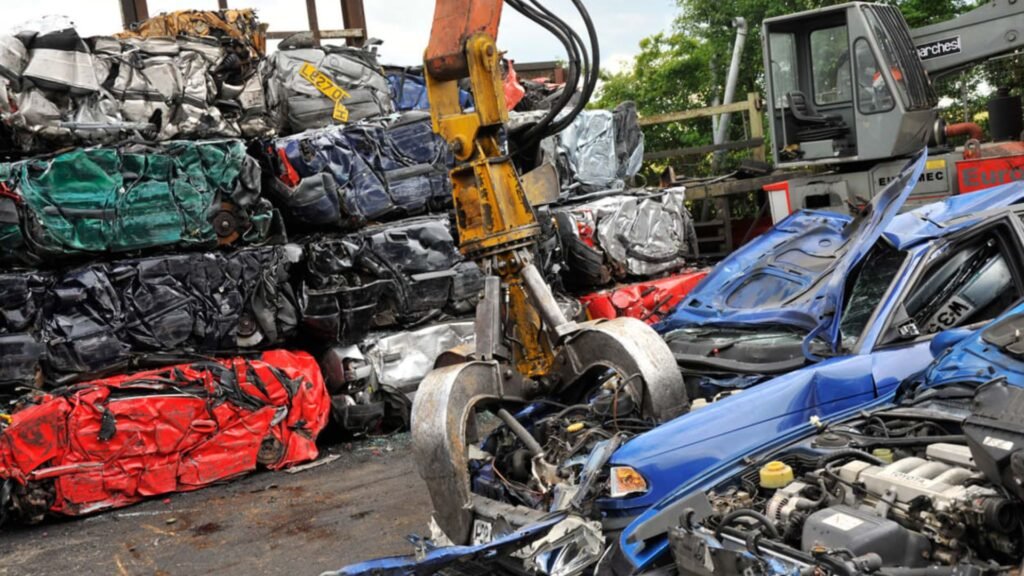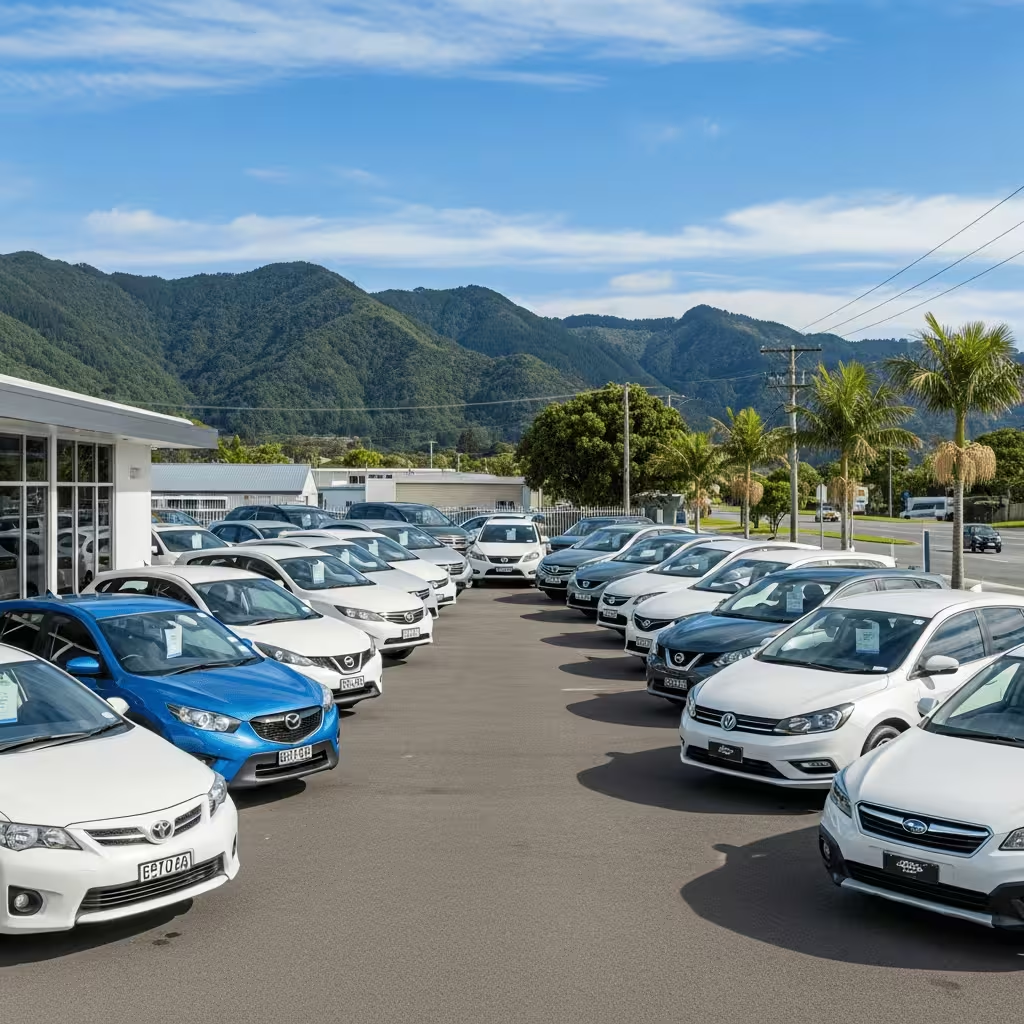Welcome to your complete guide on where you can sell your car for scrap in NZ! If your old car has finally reached the end of its journey and you’re looking for the best way to part with it, you’ve come to the right place. Whether it’s no longer roadworthy or just too expensive to fix, scrapping your car can be a quick and easy way to get cash while ensuring it’s disposed of responsibly. In this post, we’ll walk you through the best places to sell your car for scrap in New Zealand, how to maximize its value, and key steps to take before handing it over. From local scrap yards to eco-friendly recyclers, we’ve got you covered with everything you need to know to make the process hassle-free and profitable.
The best places to sell your car for scrap in New Zealand include local scrap yards, car wreckers, online car buyers, and recycling centers. Local scrap yards offer quick cash and convenient locations, while car wreckers often pay more for valuable parts. Online platforms like Trade Me Motors provide competitive offers, and recycling centers focus on eco-friendly disposal. Be sure to compare quotes, remove valuable parts, and gather the necessary paperwork to maximize your return
What Does It Mean To Scrap A Car?
Definition of Car Scrapping
Car scrapping refers to the process of dismantling a vehicle that has reached the end of its useful life. This involves taking the car apart, salvaging usable parts, and recycling the remaining materials, such as metal and plastics. The metal from the car, in particular, is a valuable resource that can be melted down and reused in other industries. The goal of scrapping is not only to dispose of the vehicle in an environmentally friendly way but also to make use of the materials that are still valuable.
Why Scrap a Car?
There are several reasons why scrapping a car might be the best option for a vehicle owner:
1. When a Car is Beyond Repair or Too Costly to Fix: Cars are complex machines with numerous components that can wear down over time. In some cases, especially with older vehicles, the cost of repairing or replacing parts can far exceed the value of the car itself. When repairs are no longer economically viable, scrapping the car becomes a logical choice.
2. Environmental Benefits of Recycling Car Materials: Scrapping a car is not just about getting rid of an old vehicle; it also offers significant environmental benefits. Recycling metals, plastics, and other materials reduces the need for new raw materials, helping to conserve natural resources. Additionally, it lowers the energy required for manufacturing, cutting down on greenhouse gas emissions. Proper car scrapping ensures that toxic materials like oils, coolants, and batteries are disposed of safely, preventing them from contaminating the environment.
3. Potential for Quick Cash: Scrapping a car can provide a financial return. Scrap dealers and recycling centers often pay cash for cars, especially for parts that are in good condition. Whether it’s the engine, transmission, or valuable metals like aluminum and steel, these components can be repurposed or sold, providing a quick and easy way to make money from a car that’s no longer roadworthy.
Legal Considerations in New Zealand
When it comes to scrapping a car in New Zealand, there are specific legal requirements that must be followed:
1. Deregistration of the Vehicle: Before scrapping a car in New Zealand, it’s important to officially deregister the vehicle with the NZ Transport Agency (NZTA). Deregistration ensures that the vehicle is no longer recorded as being on the road, which is a critical step in preventing ongoing registration fees or fines. It also prevents the car from being fraudulently resold as a functional vehicle.
2. Compliance with Recycling Standards: New Zealand has strict regulations regarding the recycling and disposal of vehicles. Car scrapping must comply with environmental standards to ensure that hazardous materials like oil, brake fluid, and batteries are disposed of correctly. Licensed scrap yards are required to meet these regulations, ensuring that vehicles are dismantled safely and sustainably.
In conclusion, scrapping a car is a responsible and financially viable option when a vehicle has reached the end of its life. Whether for environmental reasons or financial gain, understanding the scrapping process and the legal considerations in New Zealand is key to making informed decisions about vehicle disposal.
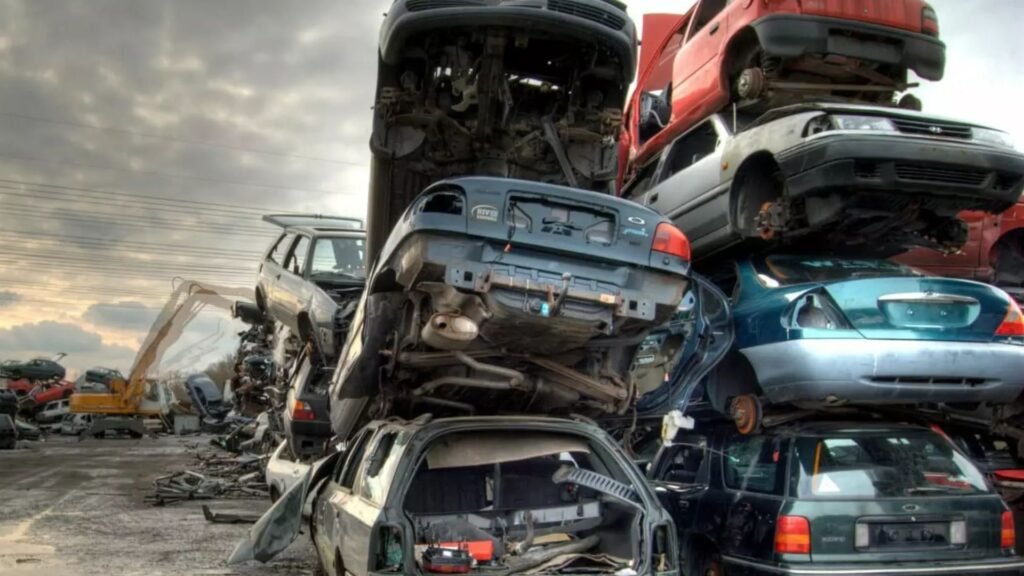
Factors To Consider Before Scrapping Your Car
If you’re considering scrapping your car, there are several factors that you should carefully evaluate to ensure you’re getting the best value possible. Scrapping a vehicle is more than just hauling it to a scrapyard — it involves assessing its potential worth, understanding the value of individual parts, and being aware of market conditions. Below, we break down the key elements to consider before making your final decision.
Assess the Value of Your Vehicle
Not all cars that are ready for scrapping are created equal. The overall value of your scrap car can vary significantly depending on its make, model, and condition. Older vehicles or those that have been involved in severe accidents may have lower scrap value, but even damaged cars might contain valuable parts. It’s important to research the potential value of your vehicle and consider whether it’s worth more as scrap or for parts. Some vehicles, especially those with sought-after components, may fetch a much higher price than you initially anticipated.
Condition of the Car
The condition of your car plays a critical role in determining how much you can get for it. A car that’s still intact, even if it’s no longer functional, is often worth more than one that’s been stripped of valuable components. Scrap yards often offer higher prices for complete cars because they contain more recoverable materials. On the other hand, a car that’s been partially dismantled or wrecked may be worth less, as fewer materials can be salvaged. Be sure to assess whether it makes more sense to sell certain parts individually before scrapping the whole vehicle.
Car Parts That May Have Extra Value
Some car parts have significant value on their own, and you may be able to sell them separately for a higher profit before scrapping the vehicle. Catalytic converters, for example, are highly valuable due to the precious metals they contain, such as platinum, palladium, and rhodium. Similarly, alloy wheels, which are made from aluminum or other lightweight metals, can also be sold for a good price. Batteries, especially if they are relatively new, and electronic components like infotainment systems or navigation units may also bring in extra cash. If you have the time and knowledge, consider selling these parts individually before turning the car over to the scrap yard.
Market Demand for Scrap
The scrap value of a car is not fixed and can fluctuate based on the demand for metals and other materials. Prices for scrap metal, including steel, aluminum, and copper, can rise and fall depending on market conditions, so timing can be key to maximizing your return. Similarly, demand for certain car parts may change based on current trends in the automotive industry, such as a higher demand for electric vehicle components or classic car parts. Stay informed about current market conditions to get the most out of your scrap car, especially if you’re in New Zealand, where metal prices can be influenced by international trade and local demand.
Compare Scrap Prices
Before deciding where to scrap your vehicle, it’s a smart idea to contact multiple scrap yards or dealers to compare prices. Not all scrap yards will offer the same rate for your vehicle, and some may place a higher value on certain parts than others. By shopping around, you can ensure that you’re getting the best deal possible. Make sure to ask about any additional services they provide, such as free towing or assistance with paperwork, as these can add to the overall value you receive when scrapping your car.
By taking these factors into consideration, you can make an informed decision and maximize the value you get from scrapping your car. Whether it’s by selling valuable parts separately or choosing the right time and place to scrap it, a little research can go a long way in boosting your return.
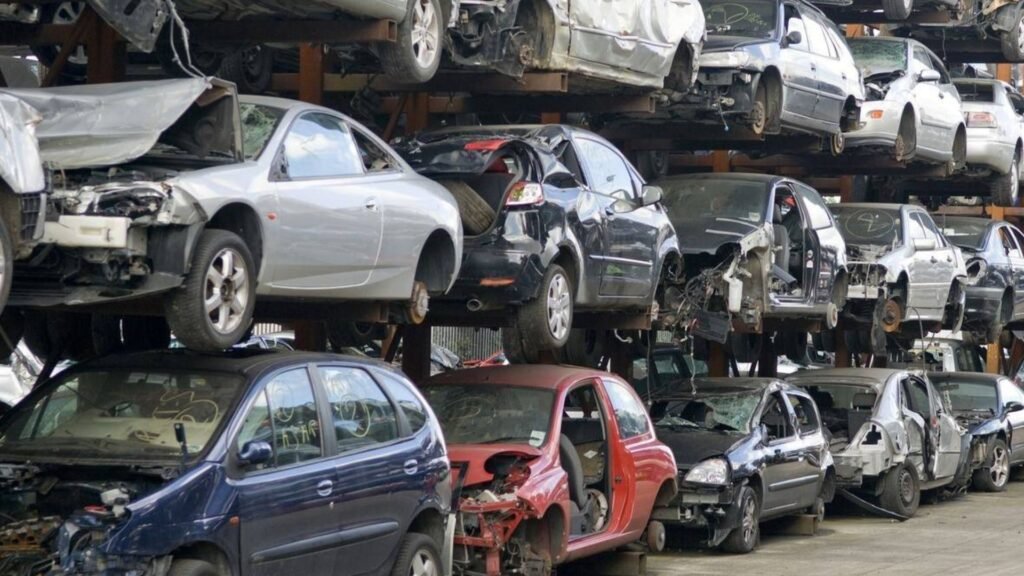
Where Can You Sell Your Car For Scrap In NZ?
When it’s time to sell your car for scrap in New Zealand, you’ll find several options available to you. Whether you want to prioritize convenience, maximize profit, or ensure your vehicle is disposed of in an eco-friendly manner, this guide breaks down the best ways to scrap your car. Understanding the pros and cons of each option can help you make an informed decision and get the best value for your old vehicle.
Local Scrap Yards
How They Work:
Local scrap yards are among the most straightforward options for selling your scrap car. These businesses specialize in purchasing cars for their metal value. The process typically involves bringing your car to the scrap yard, where they’ll assess its weight and condition. If your car isn’t drivable, many local scrap yards offer towing services. Some will give you an instant quote over the phone, making the transaction quick and easy.
Pros:
- Convenient Locations: Scrap yards are often located near residential areas, making them easy to access.
- Immediate Cash Payment: Most scrap yards offer on-the-spot cash payment once they’ve assessed your car.
Cons:
- Lower Prices: Scrap yards usually pay based on the weight of your car, meaning you may not get the best price if your vehicle has parts that are still valuable.
Car Wreckers
How They Differ:
Car wreckers operate differently from scrap yards because they focus on the reusable parts of your car rather than just the metal. These businesses strip down vehicles and sell salvageable parts like engines, transmissions, and electronics. If your car still has working components, wreckers can often provide a better deal than scrap yards.
Pros:
- Free Car Removal: Many car wreckers offer free removal services, saving you the hassle and cost of towing.
- Higher Prices for Parts: If your car has valuable parts, wreckers may pay you more than scrap yards would.
Cons:
- Price Variability: The value of your car with a wrecker can vary significantly depending on which parts are reusable, so quotes can differ from one wrecker to another.
Online Car Buyers
Options Available:
Selling your car online is another viable option. Platforms like Trade Me Motors, NZ Cash for Cars, or other similar services allow you to list your vehicle for potential buyers. Online car-buying services are a popular choice because they expose your car to a wider audience. Some platforms even offer instant cash quotes, making the process easier.
Pros:
- Wide Market Reach: Selling online connects you with buyers all across New Zealand, increasing your chances of getting a good offer.
- Compare Offers: You can easily compare multiple quotes from different buyers online before making a decision.
Cons:
- More Effort Required: Selling your car online may require more legwork, including listing your car, responding to inquiries, and negotiating with potential buyers.
Recycling Centers
Eco-Friendly Option:
Recycling centers are an excellent choice for environmentally conscious sellers. These centers specialize in the responsible disposal of vehicles, recycling as much of the car as possible. Many recycling centers will buy your car for its scrap metal value, ensuring it is processed in an eco-friendly way.
Pros:
- Environmentally Conscious: Selling your car to a recycling center ensures it is disposed of responsibly, minimizing environmental impact.
- Competitive Scrap Metal Prices: Recycling centers may offer competitive prices based on the metal value of your car.
Cons:
- Partial Acceptance: Some recycling centers may not accept the entire vehicle, requiring you to remove certain parts before selling.
Charitable Donations
Alternative Option:
If you’re not looking to maximize financial returns and would rather support a good cause, some charities in New Zealand accept scrap cars as donations. Proceeds from your car’s scrap value are directed toward the charity, which can be a fulfilling and ethical option.
Pros:
- Ethical Choice: Donating your car is a way to contribute to a cause you believe in, giving your old vehicle a purpose beyond the scrapyard.
- Tax Deductions: Depending on the charity and applicable tax laws, you may be eligible for a tax deduction.
Cons:
- Lower Financial Return: While the donation is for a good cause, you won’t make as much money as you would by selling the car outright.
When it comes to scrapping your car in New Zealand, the best option depends on your priorities. Local scrap yards and car wreckers provide fast and convenient solutions, while online buyers may offer the best deals if you’re willing to put in more effort. Recycling centers appeal to those with environmental concerns, and donating your car to charity provides a sense of giving back. Whichever route you choose, understanding the trade-offs of each option will help you make the most of your old vehicle.
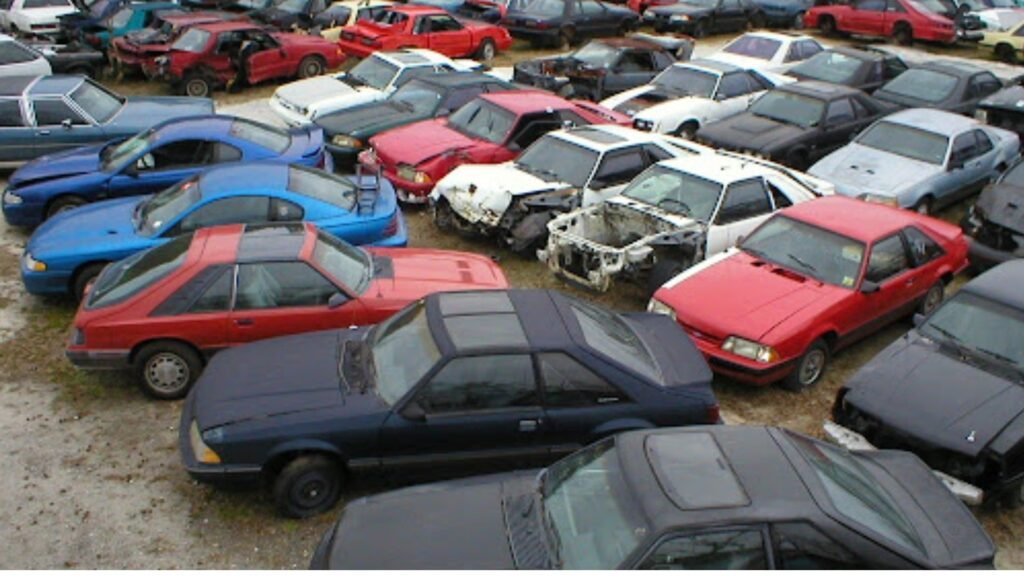
Steps To Selling Your Car For Scrap In NZ
Selling your car for scrap in New Zealand can seem like a daunting task, but with the right approach, it can be straightforward and stress-free. Whether your car is no longer roadworthy, you’re looking to free up some space, or you simply want to make some quick cash, following these steps will ensure the process goes smoothly.
Step 1: Gather Necessary Documentation
Before contacting potential buyers, it’s crucial to have all the required documentation in order. This will ensure a legal and smooth transaction. Here’s what you need:
- Vehicle Ownership Papers: You’ll need proof that the car belongs to you. Having the ownership papers ready will make it easier to transfer the vehicle.
- Deregistration Documents (if applicable): In some cases, especially if the car is no longer fit for road use, it may need to be deregistered. You can obtain this from the NZ Transport Agency (NZTA).
- Proof of Identity: Most buyers will want to confirm your identity to ensure everything is legitimate. A driver’s license or another form of government-issued ID will suffice.
Having these documents ready in advance will streamline the sale and avoid any last-minute delays.
Step 2: Contact Potential Buyers
Once you have all your paperwork, it’s time to reach out to potential buyers. This can include scrap yards, car wreckers, or even online platforms where individuals or businesses purchase scrap vehicles.
- Get Multiple Quotes: Reach out to several buyers via phone, email, or online inquiry forms to compare quotes. Different buyers may offer varying amounts for your vehicle depending on its condition, the demand for parts, or current scrap metal prices.
- Inquire About Free Towing or Pickup Services: Many scrap yards or wreckers offer free towing services, which can save you the hassle of delivering the car yourself. Make sure to confirm whether towing or pickup is included in their offer.
Getting a few quotes not only ensures you’re getting the best deal but also provides insight into how each buyer operates.
Step 3: Remove Personal Belongings
Before you finalize the sale, it’s crucial to thoroughly check your car for any personal items. It’s easy to overlook things, especially in places like the glove box, trunk, or under seats.
- Double-Check for Valuables: You’d be surprised how often people forget important items in their cars, from paperwork to electronics or even spare change. Make sure the car is completely cleared out before you hand it over.
Taking a few minutes to check your car can prevent potential frustration later on when you realize something was left behind.
Step 4: Finalize the Sale
Now that you’ve gathered quotes and selected a buyer, it’s time to finalize the deal.
- Agree on a Price: Confirm the final price with the buyer, ensuring there are no hidden fees or unexpected deductions.
- Transfer Ownership: In New Zealand, the transfer of ownership must be completed through NZTA. If you’re selling your car for scrap, some buyers may prefer the vehicle to be deregistered. This can easily be done online or in person at an NZTA office.
Make sure the ownership transfer is done properly to avoid any legal issues later on. Once the paperwork is sorted, you’re ready to move on to the next step.
Step 5: Get the Car Towed or Delivered
If the buyer offers free towing, arrange for them to pick up the car at a convenient time. Otherwise, you may need to deliver the vehicle to the scrap yard yourself.
- Schedule Towing: If towing is part of the deal, coordinate with the buyer for a pickup time. Make sure you’re present during the tow or that someone else is available if needed.
- Deliver the Car: If you prefer or need to drive the car to the scrap yard yourself, ensure the trip is planned. Depending on the car’s condition, driving it yourself might not be feasible.
Make sure to communicate clearly with the buyer about logistics to avoid any potential misunderstandings.
Step 6: Receive Payment
The final and most crucial step is to receive payment. Never hand over your car or complete the transaction without first securing the agreed-upon amount.
- Payment Methods: Discuss payment options with the buyer. Most scrap yards or car wreckers offer various methods such as cash, bank transfer, or electronic payments. Make sure the method is secure and suits your preference.
- Ensure Payment Before Handover: Always confirm that payment has been made before releasing the car. If payment is made via bank transfer, check your account to verify the funds have been received.
By following this simple precaution, you’ll ensure a secure and successful transaction.
Selling your car for scrap in New Zealand is an easy way to dispose of an old vehicle while earning some cash in the process. By following these steps—gathering documents, contacting buyers, and finalizing the sale—you’ll be able to navigate the process confidently and without hassle. Make sure to do your research and take your time to get the best deal possible for your vehicle.
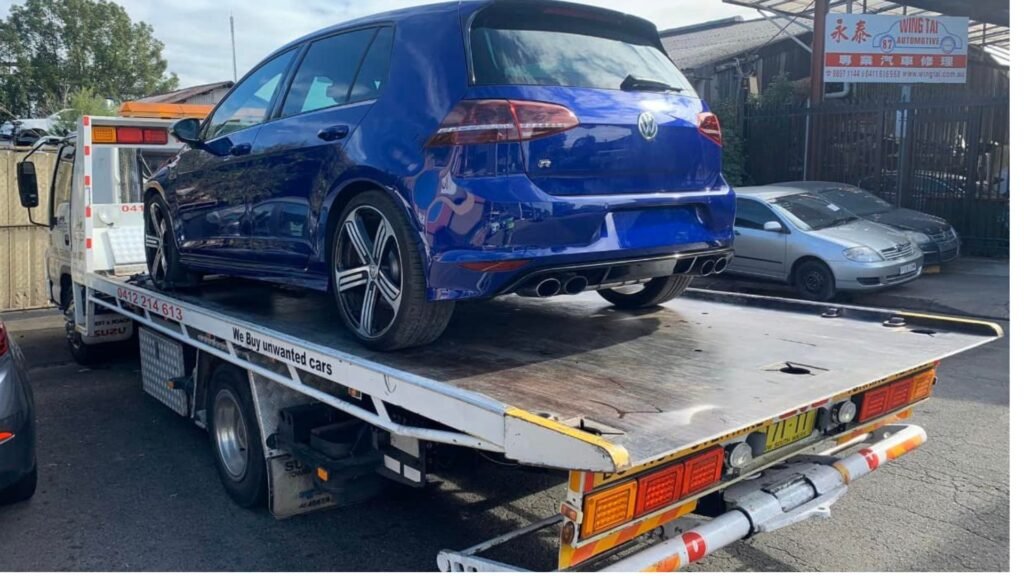
How To Maximize The Value Of Your Scrap Car
If you’re ready to scrap your old vehicle, it’s important to get the best return possible. Many people overlook opportunities to increase their payout when scrapping a car, but with a few key strategies, you can squeeze out more value than expected. Let’s break down some essential tips on how to maximize the value of your scrap car.
Sell Valuable Parts Separately
Before you scrap your car, take a moment to assess its valuable parts. Components like the engine, transmission, catalytic converter, and even smaller items like batteries, tires, or electronics may hold significant value. Selling these parts individually, either online or through local buyers, can help you get a lot more money than simply scrapping the car as a whole. Auto enthusiasts, mechanics, and repair shops are often on the lookout for used parts in good condition, so don’t miss out on the opportunity to sell them separately.
Negotiate Prices
One of the biggest mistakes people make when scrapping their car is accepting the first offer they get. Scrap yards and buyers often give low initial offers, knowing that many people won’t negotiate. Take the time to contact multiple scrap yards and auto recyclers to compare prices. Don’t hesitate to haggle—scrap car buyers expect it! With a little negotiation, you can often secure a better price for your vehicle. Also, ask about whether they include towing fees in their offer; sometimes, this can significantly impact your overall return.
Timing Is Key
Scrap metal prices can fluctuate based on market conditions, and timing your sale just right can make a big difference. Before scrapping your car, take some time to research the current prices of scrap metal. If prices are low, you may want to wait until they go back up to get a better deal. Additionally, if your car contains valuable metals like aluminum or copper, make sure to stay updated on market trends for these materials. Being informed about the market will give you the upper hand when deciding when to sell your scrap car.
Maintain Car Records
Even if your car is destined for the scrapyard, keeping up with its service records and paperwork can still be valuable. Some buyers, especially wreckers or recyclers, may offer more if they know the vehicle’s history and maintenance records. Proper documentation shows that the car was well-maintained and may make certain parts more desirable. Providing these records can also smooth the sale process, making it easier for potential buyers to assess the value of the car’s remaining components.
By following these tips, you can ensure that you’re not leaving money on the table when it’s time to scrap your car. From parting out valuable components to staying informed on market trends, these strategies will help you maximize your return and get the best possible deal.

Common Pitfalls To Avoid When Scrapping Your Car
Scrapping your car might seem like a simple process, but there are several mistakes that can catch you off guard. To ensure you get the best deal and avoid any unnecessary hassles, it’s important to be aware of the following common pitfalls:
Not Researching Prices
One of the biggest mistakes car owners make is failing to shop around for the best price. Scrap yards and buyers may offer different rates based on the condition of the car, its make, model, and even the current market value of scrap metal. If you accept the first offer you receive, you could be leaving money on the table. Always take the time to get multiple quotes from different scrap yards and buyers to ensure you’re receiving the best possible deal for your car.
Overlooking Legal Requirements
Another common pitfall is forgetting to comply with legal requirements when scrapping your vehicle. Many people neglect important steps like deregistering the car with the relevant authorities or transferring ownership to the scrap yard. Failing to handle this properly can lead to ongoing fees or even liability if the car is involved in an incident after it’s been scrapped. Always make sure you have the necessary paperwork completed, including notifying your local Department of Motor Vehicles or equivalent authority, to protect yourself legally.
Ignoring Hidden Fees
Scrapping your car can come with hidden costs, especially if you’re not careful about choosing the right buyer. Some scrap yards may charge extra fees for towing or removing your vehicle from your property. These charges can significantly reduce the amount of money you take home from the sale. Before committing to a deal, ask about any potential fees upfront, such as towing, storage, or administrative costs, so you’re not caught off guard later.
Incomplete Documentation
Having the correct documentation is crucial when scrapping your car. Without the proper paperwork, you could face delays in finalizing the sale or even complications with transferring ownership. Ensure you have all necessary documents, including the vehicle’s title, proof of identity, and any forms required by your local authorities. Being organized with your paperwork will streamline the process and prevent unnecessary headaches.
By keeping these common pitfalls in mind, you can avoid costly mistakes and ensure a smoother, more profitable experience when scrapping your car. Take the time to do your research, handle the legal requirements, and verify all the details before finalizing the deal.

The Environmental Impact Of Scrapping Your Car
Scrapping your car is more than just a way to get rid of an old vehicle; it plays a crucial role in protecting the environment. As vehicles reach the end of their life, their disposal can have significant ecological consequences. However, when done correctly, scrapping a car can reduce waste, promote recycling, and help minimize your carbon footprint. In this section, we will explore the eco-friendly aspects of scrapping your car, the recycling process for various car parts, and New Zealand’s regulations surrounding car disposal.
Eco-Friendly Disposal
When you scrap your car, you’re actively contributing to a cleaner environment. One of the primary benefits of scrapping a vehicle is reducing the amount of waste that ends up in landfills. Cars are made from various materials, including metal, plastic, rubber, and glass—most of which can take hundreds of years to decompose in a landfill if not properly disposed of.
By scrapping your car, you’re ensuring that a large portion of these materials gets recycled and reused rather than contributing to environmental pollution. In addition to keeping landfills free of hazardous waste, the recycling process requires less energy than producing new materials, which helps reduce overall carbon emissions. In short, scrapping your car the right way ensures it won’t be left to rot and pollute our environment.
Recycling Metal and Parts
The car recycling process is highly efficient. In fact, nearly 90% of a car’s materials can be recycled and repurposed. Let’s break down how different parts of your vehicle contribute to this eco-friendly process:
1. Metals: Cars contain a significant amount of steel and aluminum, both of which are highly recyclable. Recycled steel can be used in construction, manufacturing, and even in creating new vehicles. Aluminum, commonly found in car bodies and engines, is recycled into cans, new car parts, and various household items.
2. Batteries: Car batteries, particularly those containing lead acid, can be harmful to the environment if not disposed of correctly. However, these batteries are almost entirely recyclable, and the lead and plastic can be reused to produce new batteries.
3. Tires: Old tires are repurposed in a variety of ways, from being used in construction to creating fuel alternatives. This helps reduce the environmental burden of tire waste.
4. Fluids: Fluids like oil, antifreeze, and brake fluid can be harmful if left to leak into the environment. However, these fluids can be filtered, cleaned, and reused in other vehicles, ensuring minimal environmental damage.
5. Plastic and Glass: Many parts of a vehicle, including dashboards, bumpers, and windows, are made of plastic and glass. These materials can be recycled and used in everything from new car parts to everyday consumer products like bottles or insulation.
By recycling and reusing car parts, we significantly reduce the demand for raw materials, which in turn lowers the overall environmental impact of vehicle production.
Regulations for Car Scrapping
New Zealand has taken a proactive approach to ensuring that scrapped vehicles are disposed of in an environmentally friendly manner. The country’s regulations emphasize the importance of using certified car recyclers who follow strict environmental guidelines. These regulations ensure that hazardous materials, such as oil and coolant, are properly disposed of, preventing them from contaminating the soil or water supply.
In addition to protecting the environment, these certified recyclers are equipped to maximize the recycling of car parts. This ensures that a car’s materials are reused wherever possible, contributing to the circular economy.
Using a licensed car disposal service in New Zealand is not only beneficial for the environment but also essential for complying with local laws. Certified recyclers are held to high standards and follow practices that align with the country’s goals for reducing carbon emissions and promoting sustainability.
Scrapping your car is an environmentally responsible way to dispose of a vehicle that has reached the end of its life. From reducing landfill waste to recycling valuable metals and parts, the benefits are clear. In New Zealand, scrapping your car with certified recyclers ensures that your old vehicle won’t contribute to environmental harm. By taking this step, you’re not only freeing up space in your driveway but also playing a part in preserving the planet for future generations.
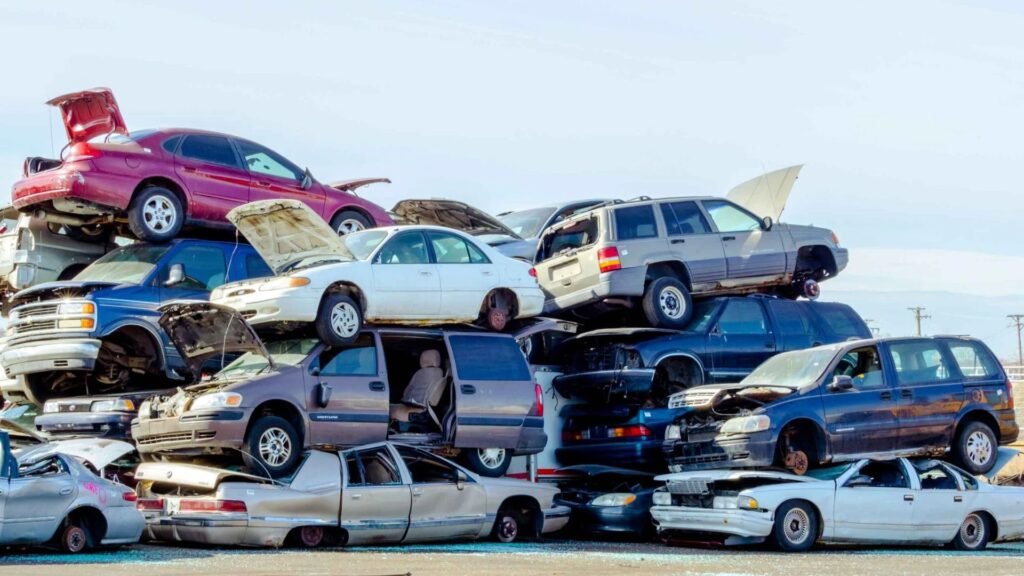
FAQs: About Where Can I Sell My Car For Scrap NZ
What does it mean to scrap a car in New Zealand?
Where is the best place to sell my car for scrap in NZ?
How much can I get for scrapping my car in New Zealand?
Do I need to deregister my car before selling it for scrap in NZ?
Will scrap yards in NZ remove my car for free?
What paperwork is required to scrap my car in New Zealand?
Can I sell valuable parts separately before scrapping my car?
How do I know if I’m getting a good price for my scrap car?
Is scrapping my car environmentally friendly?
Are there alternatives to scrapping my car in NZ?
Conclusion
In conclusion, selling your car for scrap in New Zealand can be a straightforward process if you follow the right steps. From reaching out to local scrap yards to exploring online buyers, there are multiple options to consider. Whether you choose to sell directly to a scrap yard or look for specialized car removal services, the key is to gather all the necessary information and compare your options to get the best value for your vehicle. Now is the perfect time to take action, whether that’s contacting a local buyer or doing a quick search online to find the best deal. Selling your car for scrap is not just about making some extra cash — it’s an opportunity to dispose of your vehicle responsibly, helping both your wallet and the environment.

